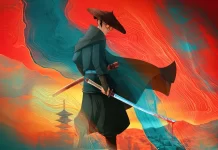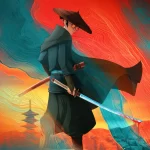Audiences had already been searching for the next hit fantasy series long before the final season of Game of Thrones aired. They’d been given a taste of a perfect blend of realism and fantasy, and they hungered for more. The hit HBO drama had raised the standard through its complex but expertly navigated narrative and its collection of intriguing characters. Unfortunately, however, the bar had been set so high that when Game of Thrones fell in quality in later seasons, it fell hard.
Most fans can agree that the highly anticipated final season lacked many of the qualities that made the series so great. Far from leaving longtime viewers satisfied, the final season managed to disappoint nearly everyone, resulting in an ever-increasing need for some kind of a replacement. Thankfully, Netflix seems to have the answer, with its upcoming adaptation of The Witcher.
Click the button below to start this article in quick view.
Much like HBO’s drama, The Witcher is based on a series of novels that combines the usual fantasy elements such as magical creatures, prophecies and a medieval setting with the kind of in-depth character exploration you’d expect from a gritty drama. The recently released teaser trailer, though brief, showcases just that.
Written by Andrzej Spakowski, the novels often center on Geralt of Rivia, a monster hunter who travels The Continent and often finds himself caught up in political intrigue and moral debates, despite his best efforts to avoid them. The monsters, elves and sorcerers aren’t just afterthoughts, they help to exemplify social issues that are explored through a modern lens. In that way, the novels are able to touch on everything from bigotry to scientific literacy, making The Witcher so much more than just another Tolkien-esque tale.
Because showrunner Lauren S. Hissrich has made it clear the show will remain as faithful as possible to Sapkowski’s work, it’s safe to assume that just like Game of Thrones in the early days, this story will also refuse to promise a neat-and-tidy ending.
At its heart, The Witcher may just be even more bleak than Game of Thrones. Just look at how each fantasy world dealt with the prophecies that shaped their stories. In Game of Thrones there was The Prince That Was Promised, which foretold that a savior would rise — or be reborn, according to the books — to fight the darkness, which many assumed to be the Night King and his white walkers. The HBO series delivered on a savior in the end, with Arya slaying the Night King, but the show fumbled her introduction as the prophesied hero, and in the process, seemingly robbed other character arcs of meaningful conclusions. Instead of being a meaningful surprise, many fans received it as a poor attempt at subverting expectations.
There’s little room for that in The Witcher, which is partially driven by a prophecy of its own. Known as Ithlinne’s Prophecy, it predicts the end of the world arriving in the form of The White Chill (or The White Frost, a name gamers might be more familiar with), an unstoppable and entirely natural global cooling. It’s implied there’s hope in a child of the Elder Blood, but even that doesn’t negate the almost certain destruction of the world. The story — as told in the novels — does subvert expectations, but it does so without risking or sacrificing the poetic integrity of any of the other characters.
Some fans might rightly argue that one of the largest reasons for the significant drop in narrative quality in Game of Thrones‘ final season is that the series passed the events of George R.R. Martin’s novels. Showrunners D.B Weiss and David Benioff knew how the story needed to end, but they — and in part, even the Song of Ice and Fire author himself — didn’t quite know how to get there.
Hissrich won’t run into any problems like that with Netflix’s The Witcher, as Sapkowski finished his novels years ago. In fact, there are several short story collections and a standalone novel accompanying the main saga, expanding on Sapkowski’s world and the backstories of its central characters.
No one can deny that the award-winning Game of Thrones was unmatched in earlier seasons, but ultimately, it just couldn’t live up to the expectations it instilled in its once-passionate fanbase. There’s a vacuum in mainstream television that Netflix’s new fantasy adaptation is perfectly well-equipped to fill. So brace yourselves, The Witcher is coming.



















![[Book Review] The Blade Itself (The First Law Trilogy) by Joe Abercrombie](https://bendthekneegot.com/wp-content/uploads/2018/01/1516047103_maxresdefault-218x150.jpg)
















